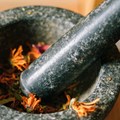Whatever you think of the government’s proposed National Health Insurance, it has brought the need for universal healthcare into sharp focus. With experts predicting it will take decades to implement, this is just the first step on a long road that leaves millions without access to adequate care in the meantime.
As South Africa grapples with the challenges and costs of implementing the NHI, the inclusion of homeopathy and other complementary and traditional options in primary healthcare could bring us closer to our universal healthcare goals.
When he assented to the NHI Bill, President Cyril Ramaphosa said healthcare in South Africa is “currently fragmented, unsustainable and unacceptable”. He added that the imbalances in the system require “a radical reimagining of resource allocation and a steadfast commitment to universal healthcare.”
This is not in dispute. The country’s public primary healthcare system is vastly under-resourced and achieving universal healthcare is going to be a significant challenge at which we cannot afford to fail. However, with the NHI set to be implemented in stages, it could very well be decades before we start to address that challenge. And with fears of an exodus of doctors because of the legislation, the danger is that we might take a step backwards before we can move forward.
One way to keep moving forward is to harness all the possible resources we have at our disposal to improve healthcare for as many people as possible. Homeopathic doctors and practitioners of complementary and traditional medicine can play a key role in strengthening primary health care, helping to alleviate some of South Africa’s healthcare burden.
Integrating complementary medicine
The World Health Organisation (WHO) has benchmarked universal healthcare at 1 doctor for every 1,000 patients. In South Africa, we are still some ways off from this, with our doctor-patient ratio at a staggering 1: 3,192.
The WHO has suggested that integrating traditional and complementary medicine (T&CM), which includes homeopathy, into healthcare systems could help move the needle on universal healthcare while tackling health challenges through prevention and cure.
Its 2019 report on traditional and complementary medicine states: “Countries aiming to integrate the best of T&CM and conventional medicine would do well to look not only at the many differences between the two systems, but also at areas where both converge to help tackle the unique health challenges of the 21st century. In an ideal world, traditional medicine would be an option offered by a well-functioning, people-centred health system that balances curative services with preventive care.”
Our Brics counterparts are a model for how to successfully do this. In Russia for instance, about 100,000 doctors use homeopathy and homeopathic medicines to treat patients. In Brazil, more than 5,000 homeopathic doctors have been integrated into the country’s unified healthcare system. To meet the WHO targets, India has focused on the incorporation of homeopathy and other indigenous medicine practices into its healthcare system, achieving a 1:819 doctor-patient ratio.
There is growing evidence that incorporating homeopathic care into primary and rural healthcare is having an impact here at home. In 2017, a homeopathic clinic called the Khula Natural Health Centre was established in rural KwaZulu-Natal near Saint Lucia. Access to primary healthcare services in this area is extremely limited – the local government clinic is staffed by two nurses with a visiting doctor attending once a month and the nearest public hospital is 70km away.
Despite initially being run on a part-time basis, the Khula Natural Health Centre has done more than 42,000 patient consultations since 2017. It started operating full time in April 2023 due to demand, and a survey of returning patients shows that 95% said their health had improved since visiting this clinic. Most patients (98%) also said the waiting times were better than at public facilities.
A review of the costs associated with treating patients at the Khula clinic in KZN also shows that homeopathic care is approximately five times less expensive than treatment in public healthcare facilities.
Integrating homeopathy into primary healthcare can help reduce costs, making healthcare more affordable and sustainable. The Khula Clinic model has now also been expanded to rural communities in Limpopo and the Eastern Cape, giving people access to a broader range of healthcare options in these areas.
Aligning with NHI
Improving access to homeopathic, traditional and complementary medicines and care will not only help meet the healthcare needs of South Africans in a way that is affordable, sustainable and accessible but will also provide them with a choice that may be more accessible or better aligned with their cultural beliefs. Is this not fully in sync with what the NHI aims to achieve?
To do this, the government needs to harmonise the laws governing the practice of homeopathy and integrate them into the primary healthcare system. This will not only make them safer and easier to regulate but will bolster the system with thousands of professionals who are ready and willing to support the government’s goal of universal access to healthcare.
De Canha is the president of the Homeopathic Association of South Africa, a voluntary association recognised by the Allied Health Professions Council of South Africa (AHPCSA) as the official representative of the homeopathic profession in South Africa.







































